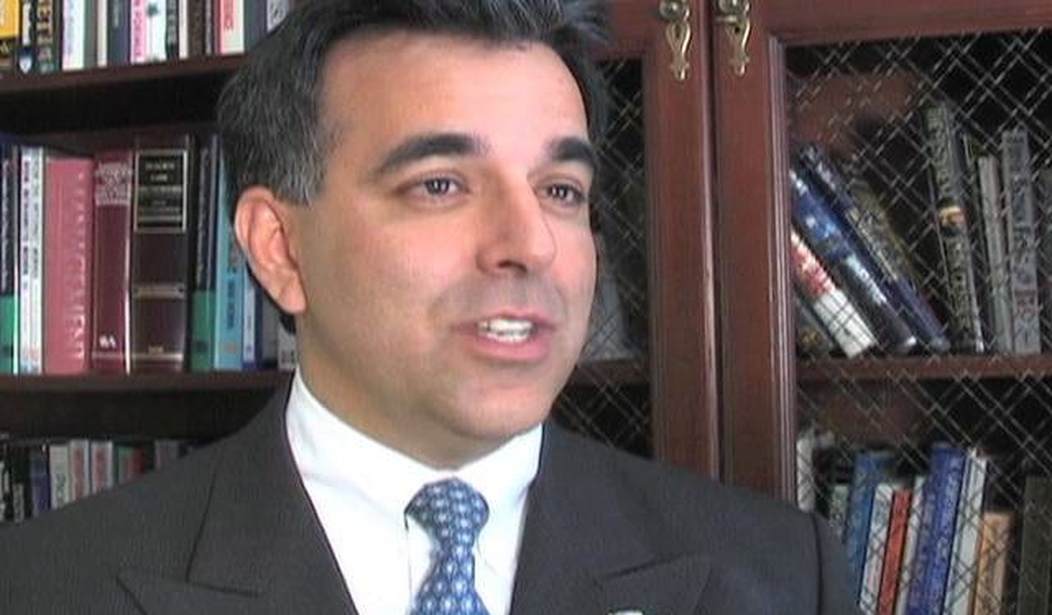WASHINGTON – A former Small Business Administration chief says the GOP has many ideas that appeal to Hispanic entrepreneurs but it is not doing a good job in bringing its message to them.
“The Republican Party has good ideas in regards to entrepreneurs,” said Hector Barreto, chairman of the Latino Coalition, a Washington, D.C.-based nonprofit formed in 1995 to represent Latino entrepreneurs and businesses.
To emphasize his point, Barreto relates a story of when President Ronald Reagan was asked to explain the difference between a small businesses and a big business. Reagan’s answer was that a small business could be a big business if government got out of its way.
“The Republican Party is for smart government, not big government. It wants to lower taxes on small businesses, it wants small businesses to grow, and it wants the economy to grow,” Barreto said.
Barreto, who served as the SBA’s administrator for five years, thinks that one of the challenges facing the Republican Party is that it has good ideas but often the party does not have the right spokespeople to spread them or there is a “difference of opinions” within the GOP on issues like immigration.
He says the majority of Americans feel like the nation’s immigration system is broken and the government needs to fix it, but there are people in the Republican Party who believe “we can’t do anything about immigration.”
“When I was in the administration, President Bush wanted to do something about it. We thought we had an opportunity. The economy was better and the unemployment rate was lower. We just felt that it was the right time to do it,” Barreto said. “We got no support on this. Not from Republicans, and not from Democrats because it was a George W. Bush idea. So, then, we just decided to do nothing.”
A recent poll by the American Action Forum showed that 4 out of 5 GOP primary voters support a step-by-step approach to immigration reform, which is the approach that House Republicans have said they prefer.
A Latino Decisions poll of registered Hispanic voters found that they are generally dissatisfied with both parties’ current actions on immigration policy.
Nearly three-quarters of Latino voters say it is “very or extremely important” to pass immigration reform in 2014. Almost half of respondents said they would blame the GOP if reform does not pass, compared to 16 percent blaming Democrats.
The poll also shows that if House Republicans pass immigration reform legislation, more Hispanics say they will consider supporting Republicans. When asked if they had ever voted for a Republican in the past, 49 percent said yes.
President Bush pushed for changes on immigration in 2007, but he was unable to overcome fierce opposition from fellow Republicans who said it was amnesty that rewarded illegal immigrants. Nearly one-third of Senate Democrats voted to block action on the bill.
“I thought to myself at the time that all of those people that are complaining about immigration are just kicking the can down the road,” Barreto said. “Seven years later, the problem hasn’t gotten better, it has gotten worse. So those folks that were totally against it, what have they really gained? Other than the fact that they prevented a solution from moving forward.”
“They are partly responsible for the mess that we are in,” he added.
During his five-year term under President Bush, Barreto expanded the SBA’s small business loan portfolio and pushed financial and business development programs for women and minority-owned business support, guaranteeing loans totaling more than $60 billion.
The estimated 3.2 million Hispanic-owned businesses in the U.S. generate nearly $500 billion in economic activity every year, according to the United States Hispanic Chamber of Commerce (USHCC).
His father, Hector Barreto, Sr., founded the chamber in 1979. Today, the USHCC has 200 local chambers and business associations.
Despite the heated debate about immigration reform, the issue is not a priority for Latinos. According to the Pew Research Center, the Hispanic community ranks several issues higher than immigration reform. In 2013, 57 percent of Hispanic registered voters called education an “extremely important” issue facing the nation. Issues like jobs, the economy, and healthcare also came ahead of immigration.
Some Latino leaders say they believe that immigration reform is crowding out other issues facing the Latino community. In a recent commentary, Angelo Falcon, president of the National Institute for Latino Policy, wondered whether the continued debate has become a distraction from the needs of the much larger pool of Hispanics who are citizens.
The Pew Research Center’s Hispanic Trends Project estimates that there are 11.7 undocumented migrants in the United States. By comparison, the overall U.S. Hispanic population is 53 million, according to the U.S. Census Bureau.
“Politically, the immigration issue is presented as the silver bullet to the heart of the Latino vote. … The fact that immigration never seems to emerge as the only or even most important issue prioritized by Latinos in poll after poll doesn’t seem to matter; how other issues will influence the Latino vote is not really seriously being discussed,” Falcon wrote.
The unemployment rate among Hispanics peaked at 12.3 percent in 2010, compared with 8.9 percent among non-Hispanics. Joblessness has steadily fallen to 8.9 percent, but remains above its pre-recession level of 4.9 percent.
Barreto says the U.S. will have 12 million Hispanic-owned businesses within 10 years. These votes are going to be “up for grabs” and an agenda focused on growing the economy will be vital for attracting Hispanic voters.
He says the Republican Party’s core beliefs of lower taxes and small government resonate with Latinos. But in order to win the Hispanic vote, the GOP needs to start offering solutions to everyday problems in the Hispanic community.
“You have to have something to beat something. You can’t just be against something,” he said. “We have a good message, we just need to articulate it and we need some policy prescriptions.”









Join the conversation as a VIP Member